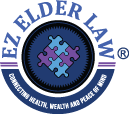On November 14, 2023, the Centers for Medicare and Medicaid Services announced the 2024 SSI and Spousal Impoverishment Standards. The SSI rate for 2024, which was previously announced by the Social Security Administration, will rise to $943. The Medicaid Income Cap will rise to $2,829. The minimum MMMNA will be $2,465 and the maximum MMMNA […]
Blog
Effective January 1, 2024, the federal Supplemental Security Income payment amount will increase by 3.2 percent. The amounts paid to individuals and couples are below: Recipient Unrounded annual amounts for— Monthly amounts for 2024 2023 2024 a Eligible individual $10,970.44 $11,321.49 $943 Eligible couple 16,453.84 16,980.36 1,415 Essential person 5,497.80 5,673.73 472 Impact on Medicaid This […]
Am I Eligible for Medicaid? Recently we were asked about the following fact pattern. Parent had multiple properties in different counties. More than 60 months ago, parent gave these properties to children reserving a life estate. The question, initially, was whether parent is eligible for nursing home Medicaid. The follow-up question was whether the property […]
On October 24th and 25th, 2023, the Tennessee Justice Center will present its annual two day virtual training event on Medicaid eligibility. This event is designed for health care providers and advocates. Information regarding what’s covered and how to register is below: Medicaid Eligibility Boot Camp – A Virtual Training Event Navigating the Red Tape […]
We’re just getting to the point where we’re producing videos for EZ Elder Law. There are, after all, only so many hours in the day. This video published on September 17, 2023, runs through basic Medicaid eligibility in Georgia under the 2023 rules. It focuses on nursing home Medicaid and home health Medicaid. Slides for […]

The SSI rules are a good beginning point because Medicaid cannot impose rules more restrictive than the SSI rules. SSI excludes burial funds up to the exemption limit which is currently $1,500 for the applicant and the applicant’s spouse. POMS SI 01130.410. Burial funds can be: revocable burial contracts; revocable burial trusts; other revocable burial […]

The following Georgia Medicaid cases were litigated outside the context of an administrative hearing, or were appealed beyond that point. Of course, we are not representing there are no other published decisions on point. United Cerebral Palsy of Georgia v. Ga. Dep’t of Behavioral Health and Dev. Disabilities, 331 Ga. App. 616 (2015). A provider […]

July 18, 2011 Paul A. Kryglik, Director Office of Regulations Social Security Administration 6401 Security Blvd Baltimore, MD 21235 Re: Program Operations Manual System SI 1120.220, cash loans Dear Director Kryglik: I am requesting a ruling from your office on an issue involving Program Operations Manual System (POMS) SI 1120.220, cash loans, with respect to […]

When applying for Medicaid, the nursing home spouse (called the Institutionalized Spouse) is often a joint owner (or sole owner) on checking, savings and other acounts. Should those resource be taken out of the name of the Institutionalized Spouse? The answer is generally “yes,” but it requires some context and some qualifications. The context and […]



